MercoPress. South Atlantic News Agency
Stories for 2022
-
Tuesday, March 8th 2022 - 21:35 UTC
Russia announces ceasefire Wednesday to activate humanitarian corridors
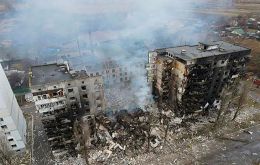
Russia will declare a temporary ceasefire Wednesday to provide for the functioning of humanitarian corridors from Kyiv, Chernihiv, Sumy, Kharkiv, and Mariupol, it was announced Tuesday.
-
Tuesday, March 8th 2022 - 21:16 UTC
Argentina to welcome Ukrainian refugees
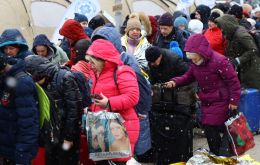
The Argentine government of President Alberto Fernández Tuesday announced it would be granting humanitarian visas to Ukrainian refugees fleeing their war-torn country.
-
Tuesday, March 8th 2022 - 20:15 UTC
BBC to resume broadcasting from Russia despite muzzle law

While most western news outlets have decided to no report from inside Russia, the BBC Tuesday announced it would resume broadcasting in English after thoroughly reviewing the country's new legislation against fake news, which provides for harsh prison sentences for the publication of information deemed false.
-
Tuesday, March 8th 2022 - 20:14 UTC
Puerto Rico lifts most COVID-19 restrictions
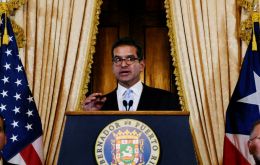
Puerto Rico Governor Pedro Pierluisi Monday announced that effective March 10, the mandatory use of facemasks will stand only at health care facilities, after a significant drop in infections (positivity standing at 4.1%) had made it possible to lift several restrictive measures originally set in place to fight the COVID-19 pandemic.
-
Tuesday, March 8th 2022 - 09:55 UTC
“Nobody is happy with the IMF understanding, we all despise the Fund,” Argentine president
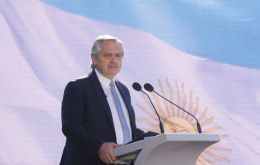
Argentine president Alberto Fernandez admitted “nobody is happy” with the latest understanding reached with the International Monetary Fund, but under no circumstances does it condition the Argentine government economic policy, finally confessing he “despises” the IMF.
-
Tuesday, March 8th 2022 - 09:54 UTC
Surprise turnaround of Ukraine invasion: Washington and Maduro regime hold weekend talks
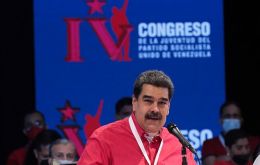
The United States and Venezuela are back in talking terms. White House admitted on Monday that a US delegation held weekend talks in Caracas with the government of Nicolas Maduro including discussions on energy supplies.
-
Tuesday, March 8th 2022 - 09:52 UTC
Envoys keep talking, Russia keeps invading Ukraine
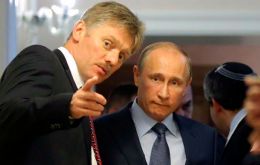
The third round of talks between Russian and Ukrainian envoys ended Monday with nothing much to account for after nearly three hours at Belovezhskaya Pushcha on the Belarus-Poland border.
-
Tuesday, March 8th 2022 - 09:50 UTC
Chilean Deputies pass State of Exception for southern provinces

Chile's Lower House Monday passed 73 votes in favor, 41 against, and five abstentions the renewal of the State of Exception in four southern provinces in the Bíobio and La Araucanía regions. The measure still has to be approved by the Senate.
-
Tuesday, March 8th 2022 - 09:46 UTC
Ukraine/Russian conflict will have a severe impact on the global economy, anticipates IMF

The International Monetary Fund (IMF) Executive Board addressed the economic impact of the war in Ukraine, price shocks of energy and commodity prices, and on possible fast-tracked financial assistance for affected countries since a severe impact on the global economy can be expected.
-
Tuesday, March 8th 2022 - 09:36 UTC
Brazilian economy expanded 4,6% in 2021, despite a 0,2% contraction of agriculture

Contrary to foreign forecasts from multilateral organizations forecasts, Brazil’s Gross Domestic Product (GDP) ended 2021 with a 4.6% growth, totaling 8.7 trillion (about US$ 1,7 trillion at the current rate). The country managed to recover from the slowdown of 2020 when the Brazilian economy shrank 3.9% because of the pandemic.
